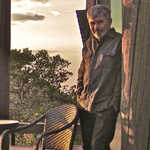

Alcoholism on reserves
December 6th, 2013, 10am
It was -23°C with few clouds. The breeze was gentle.
Alcohol on reserves… Another possible-alcohol related incident has happened on the Yellow Quill First Nation in Saskatchewan and 2 children died. The 1 and 3 year old sisters were discovered in only T-shirts and undergarments in the snow suffering from hypothermia and frostbite. Apparently the father had been drinking heavily that day. Yellow Quill First Nation tried unsuccessfully to become a dry reserve a year ago.
There are currently 22 dry reserves in Manitoba, but the leaders’ debate whether banning the alcohol is really the answer. Some reserves were dry and now allow limits on alcohol for personal use. When the reserve is dry, other issues ensue and tragic deaths have occurred from people going to remote areas to pick up the illegal alcohol. Bootlegging becomes a big commodity. Banning alcohol from Aboriginal people is like going back in time. In Canada, under the Indian Act, Aboriginal people were banned from possessing and consuming alcohol on reserves until 1951. There is a lack of police enforcement to support this type of ban as well.
The biggest issue is that it doesn’t get to the root of the problem. There are addictions to be dealt with, and if you have an alcohol addiction you will find a way to get the alcohol. What needs to happen is we need to provide programs, services and treatments to those who need it.
http://www.cbc.ca/news/canada/manitoba/banning-booze-won-t-solve-problems-on-reserves-chiefs-1.705400
Filed Under
Other moments in The Pas
-
prairie first nations, indigenous, Brandon Story Class
The Seven Teachings are part of the First Nations Peoples lives, living on the Prairies here in Canada
in The Pas, Canada -
prairie first nations, indigenous, Brandon Story Class
Suicide on reserves
in The Pas, Canada -
prairie first nations, Brandon Story Class
Pike Lake Culture Daylocal artist: Solomon Colomb 2002
in The Pas, Canada -
prairie first nations, Brandon Story Class
A look back to The Oka Crisis, 13 years ago.Part of my Winter Count
in The Pas, Canada -
Brandon Story Class
Pearl exclaims;"Can I help you with your homework"
in The Pas, Canada -
prairie first nations, Brandon Story Class
The ulu knife, traditionally the handle is made from caribou antler or walrus ivory. The blade was made of slate, until metal was introduced during the Fur Trade.
in The Pas, Canada -
prairie first nations, Brandon Story Class
Art from Baffin Island.
in The Pas, Canada -
prairie first nations, indigenous, Brandon Story Class
White Feather
in The Pas, Canada -
Brandon Story Class, prairie first nations
Weaving Stories and TraditionsStorytelling and weaving are treasured aspects of indigenous peoples. Much time is put into both the weaving of the basket and the weaving of a story.
in The Pas, Canada

